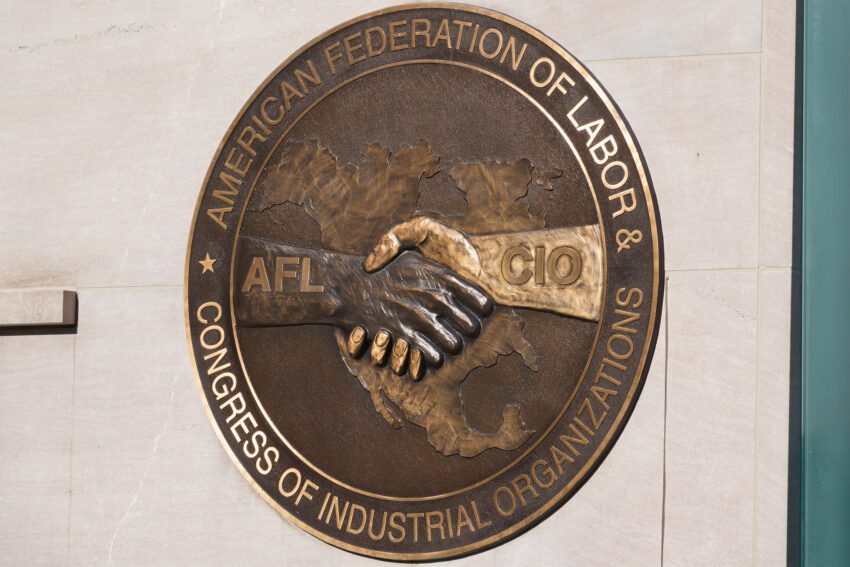
major federation of unions calls for worker-centered The American Federation of Labor and Congress of Industrial Organizations (AFL-CIO) has launched a significant initiative aimed at shaping the future of artificial intelligence (AI) in the workplace, emphasizing the need for a worker-centered approach.
major federation of unions calls for worker-centered
The Workers First Initiative on AI
On Wednesday, the AFL-CIO, the largest federation of unions in the United States, called upon employers and policymakers to engage in what it terms the “workers first initiative on AI.” This initiative is designed to strengthen collective bargaining rights and advocate for regulations that mitigate the adverse effects of AI on workers. Additionally, it includes an educational campaign aimed at informing both workers and employers about the implications of AI technologies.
Liz Shuler, the president of the AFL-CIO, articulated the federation’s stance in a press release, stating, “We reject the false choice between American competitiveness on the world stage and respecting workers’ rights and dignity.” This statement underscores the federation’s commitment to ensuring that technological advancements do not come at the expense of workers’ rights. The AFL-CIO represents 63 unions and nearly 15 million workers across various sectors, including healthcare, education, and transportation.
Top Priorities for a Worker-Centered Technological Future
The AFL-CIO has outlined several key priorities that it believes are essential for fostering a worker-centered technological future. These priorities include:
- Stronger Enforcement of Labor Rights: The AFL-CIO advocates for enhanced protections against AI-driven workplace surveillance and layoffs, emphasizing the need for regulations that protect workers from being monitored excessively or unjustly terminated.
- Copyright Protections: The federation calls for safeguards against copyright infringement, particularly as AI technologies increasingly generate content that may infringe on existing intellectual property rights.
- Retraining Programs: Recognizing the potential displacement of workers due to AI, the AFL-CIO emphasizes the importance of retraining programs that prepare workers for new roles in an AI-driven economy.
- Transparency in AI Systems: The AFL-CIO insists on transparency regarding AI systems purchased with taxpayer dollars, advocating for accountability in how these technologies are implemented in the workplace.
While the AFL-CIO has clearly articulated its priorities, it has not specified the “serious consequences” that employers should face for using technology to undermine democracy and civil rights. However, Ed Wytkind, the interim director of the AFL-CIO’s Technology Institute, mentioned to The Verge that traditional remedies for protecting workers could include court cases, fines, or even criminal charges against employers who violate these principles.
The Role of Collective Bargaining
Wytkind emphasized that collective bargaining is one of the most effective tools available to manage the transition to an AI-driven future. He cited historical examples, such as the United Auto Workers (UAW) collaboration with car manufacturers to automate the auto sector starting in the 1950s. “It’s why you have state-of-the-art equipment in some transportation sectors with workers working with that equipment quite well,” he noted, highlighting the potential for successful partnerships between labor and industry.
The AFL-CIO aims to leverage collective bargaining to combat AI-powered workplace surveillance. Wytkind pointed out that contract negotiations have historically been used to prevent employers from implementing intrusive surveillance measures, such as hidden cameras in the workplace. He noted that while surveillance technologies have evolved, the need for workers to have a say in how they are monitored remains critical.
Involvement of Workers in AI Development
Another crucial aspect of the AFL-CIO’s initiative is the call for worker involvement in the AI development process. This demand may be challenging for tech companies, but the AFL-CIO argues that government-funded AI research should prioritize the inclusion of workers and unions. “Incorporating worker voices and unions into these research initiatives should be a requirement and a national priority,” the AFL-CIO stated. Wytkind elaborated that involving workers in the development process can help companies avoid investing in ineffective or unsafe technologies, ultimately benefiting both employers and employees.
Legislative Efforts to Regulate AI
In addition to its labor initiatives, the AFL-CIO is actively pursuing state and national legislation aimed at regulating AI technologies. Wytkind stated, “There are ways to put in the law and in the regulations, a requirement that you have workers involved in the future of new technologies.” This legislative push is critical, especially as the rapid advancement of AI continues to outpace regulatory frameworks.
However, regulating AI has proven to be a challenging endeavor at both state and federal levels. The AFL-CIO has faced obstacles in its efforts to advocate for responsible AI regulations. For instance, when bipartisan initiatives emerged to cut the AI moratorium established during the Trump administration, the AFL-CIO supported these efforts. Despite this, California Governor Gavin Newsom vetoed the “No Robo Bosses Act” on October 13th, which would have mandated human oversight of AI-enabled firings and workplace discipline. Wytkind expressed disappointment over the veto but emphasized that it would not deter the AFL-CIO from pursuing strong, commonsense guardrail policies in state legislatures.
Political Landscape and Funding Challenges
The AFL-CIO faces formidable opposition in its quest for a worker-centered approach to AI. The rise of AI super PACs has intensified the political landscape, with major tech companies, such as Meta, establishing their own pro-AI political action committees to promote their agendas. In August, Meta created a super PAC in California to funnel money into advertisements supporting its interests.
In contrast, the AFL-CIO’s California chapter has significantly increased its political contributions, spending over $2 million on donations to California elected officials in 2024, a stark increase from the $70,000 spent in 2023. This surge in political spending reflects the urgency of the AFL-CIO’s mission to advocate for workers’ rights in the face of rapid technological change.
A Unified Technology Agenda
Wytkind noted that the AFL-CIO has never before passed a unified technology agenda of this magnitude. Previous technology agendas tended to focus on specific sectors or types of workers, but the challenges posed by AI are universal. “You cannot point to a single sector of the economy or public services that will not be affected by AI, at least moderately, if not overwhelmingly,” he stated. This recognition of AI’s pervasive impact underscores the need for a comprehensive approach that encompasses all workers, regardless of their industry.
Conclusion
The AFL-CIO’s “workers first initiative on AI” represents a significant step toward ensuring that the future of artificial intelligence is shaped with workers’ rights and dignity at the forefront. By advocating for stronger labor protections, transparency in AI systems, and worker involvement in the development process, the AFL-CIO aims to create a more equitable technological landscape. As the debate over AI regulation continues, the federation’s efforts will be crucial in navigating the complexities of this rapidly evolving field.
Source: Original report
Was this helpful?
Last Modified: October 15, 2025 at 7:38 pm
0 views















